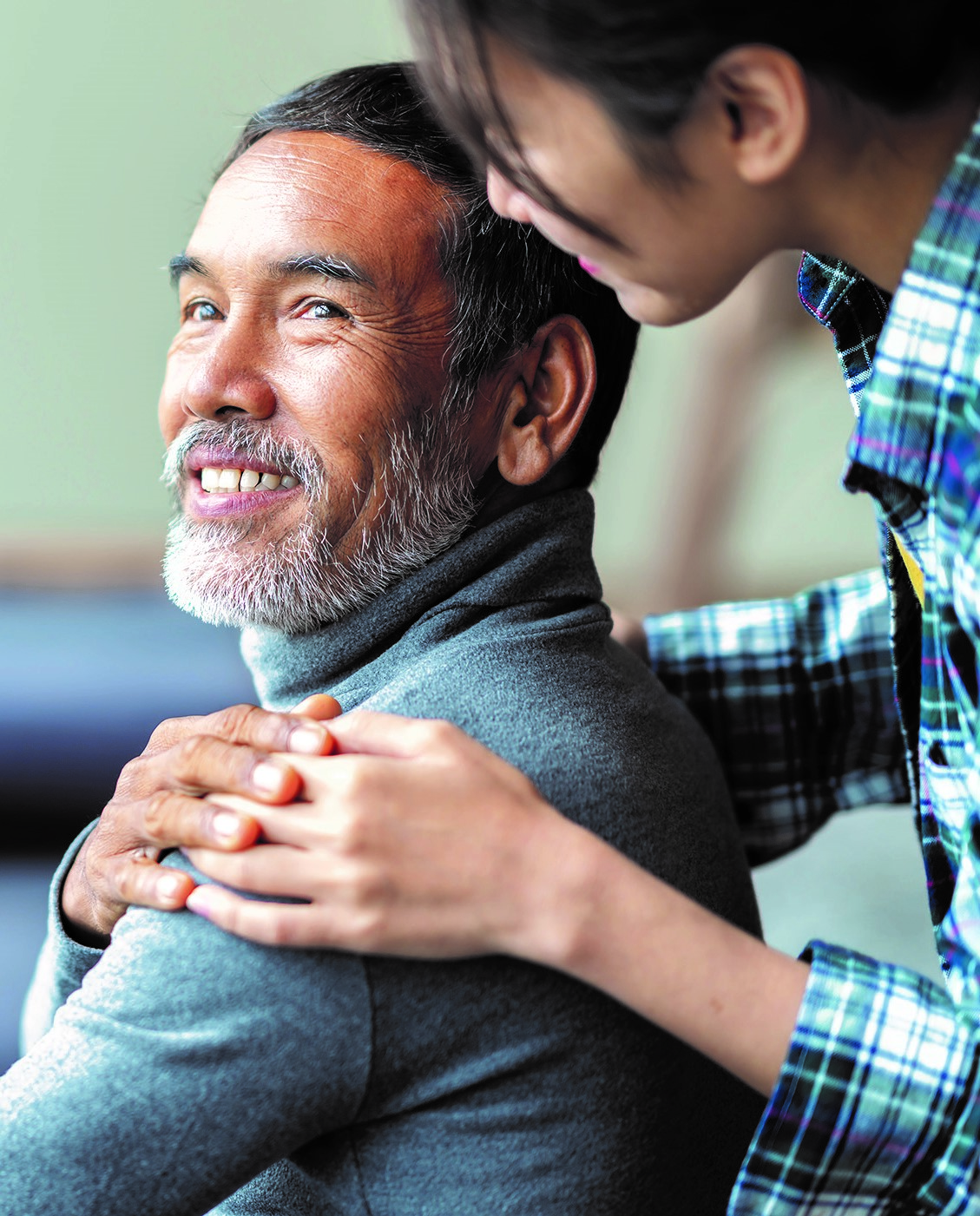First Aid for Mental Health
See the world through the eyes of others
| Recordings Now Available |
One in every five Americans (52.9 million people) experience mental illness each year
The signs of someone struggling with mental health are often subtle, leaving many conditions undetected and therefore undiagnosed and untreated. It’s important to not only recognize these signs in ourselves but in our family, friends and colleagues so that we can give them the support they need when they need it.
Recognizing this gap in care and the results from the 2021 Clergy Well-being Survey showing a steady decline in mental and emotional health, Wespath is offering first aid training for mental health.
First aid training for mental health is a two-part webinar training. Leading the training is Chris White, an international UK government hostage and crisis negotiator and First Aid for Mental Health trainer. This training will teach you how to identify and understand mental health challenges with empathy, and without judgment.
According to White, “We all have our ‘window on the world’ and that window is in a room. The First Aid for Mental Health concept of empathy is listening without judgment to earn the right to enter another person’s room and look at the world through their window." First Aid for Mental Health teaches you how to be invited (or welcomed) into someone else’s room, see the world through their window and get them the help they need. It also teaches you how to accept and understand your own mental health needs, without embarrassment or shame.
Session 1 - The Basics
Duration: 60 minutes
The first session teaches the foundational concepts of mental health, the ability to identify when you or someone else may have mental health needs that require assistance and the skills to start a conversation and get them the help they need. Session 1 includes topics on:
- Current mental health challenges and statistics
- Influences, stress, vulnerability and self-awareness
- Stigma, discrimination and promoting inclusion
- Identifying and coping with stress; exploring our own ‘stress signatures’
- First Aid for Mental Health: principles to approaching and helping others
Session 2 – A Deeper Dive
Duration: 60 minutes
The second session dives deeper into external influences, stress, vulnerability and ways in which our thoughts, feelings and behaviors are impacted every day. It provides practical methods for how to manage ourselves and others in crisis. Session 2 topics include:
- Personal resilience and staying well
- Understanding ways in which we can become unwell
- An introduction to depression, substance abuse, anxiety and self-harm—risk factors and First Aid for Mental Health interventions
- Suicide and First Aid for Mental Health for suicidal crisis
- Connecting with others, active listening and understanding common personal barriers to having an effective conversation
Source: https://www.nami.org/mhstats
|
Chris White - Alert: 24 Senior Consultant With a deep understanding of the human factors that underpin mental well-being and resilience, Chris’ unique insights have helped people in crisis around the world. Chris is a leading international UK government hostage and crisis negotiator and First Aid for Mental Health trainer with extensive international experience in non-traditional, hostile and sensitive areas. In addition to his base in the UK, he has lived and operated in the United States, South Africa, Jamaica, Nigeria, Kenya, Iraq and Afghanistan, giving him a global perspective across a broad spectrum of cultures, religions, values and belief systems. A graduate of the FBI National Academy in Quantico, Virginia, Chris is a member of the International Security Managers Association Senior Executive Leadership Program and a First Aid for Mental Health professional. Chris belongs to a global network of fellow mental health and well-being professionals, enabling him to keep pace with changing global methodology and continuously develop his professional knowledge. Chris lives in England with his family and uses his spare time to engage with local community projects. |


An Introduction to Mental Health: Why does it matter?
A look at the session ahead, facts/stats and why this subject is important today
The Mental Health Continuum: Where is your ‘red dot’?
How our mental health moves along the continuum and how ‘no diagnosis’ does not mean ‘no mental illness’
Stigma and Discrimination
How mental illness still carries stigma and leads to discrimination and how we can all help to reduce these factors
Frame of Reference: Your ‘window on the world’
How our individual frame of reference is created and a live demonstration on how people can have a very different take on a single topic
Basic Needs: Ignore them at your peril
Introducing the seven basic needs as an alternative way of understanding how well we are doing
Stress, Stressors and Understanding our Own Capacity
A simple model to understand our own capacities for coping with stress and monitoring nourishing versus depleting habits
Thinking Distortions
Understanding three common thinking distortions (Generalization, Labelling and Catastrophizing) and how to overcome them by putting our thoughts ‘on trial’
Connecting, Influencing and Persuading Part 1: Communication skills
An introduction to the techniques used by hostage negotiators to build rapport, create better connections, and have more meaningful conversations (this topic will continue and be covered in more depth during Session 2)
Follow-up items from Session 1:
Bonus Content: Q&A with Chris White
|

Understanding Common Mental Illness Experiences: How can we help?
Key facts around depression, substance misuse, self-harm and eating disorders, and examining how First Aid for Mental Health can have a positive impact on those affected
Suicide and First Aid for Mental Health
Key facts and myth-busting around suicide and practical tools for dealing with people in suicidal crisis
Connecting, Influencing and Persuading Part 2
An in-depth look at the techniques used by hostage negotiators, including ways to defuse conflict and practical methods to connect with people in crisis
Follow-up items from Session 2:
|
|
|

